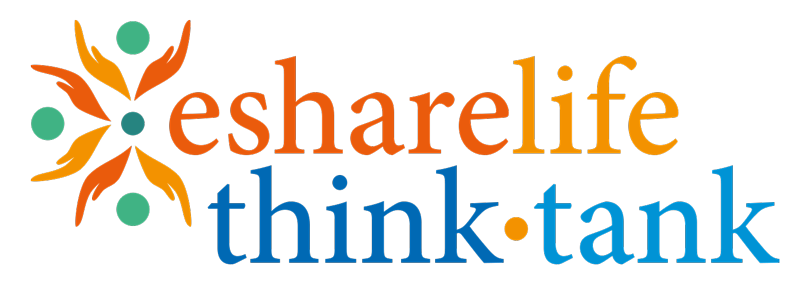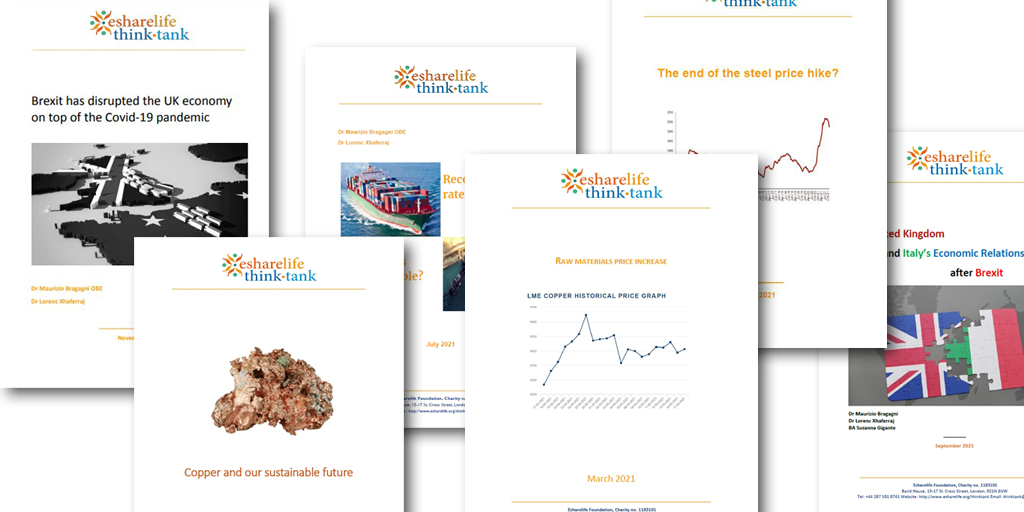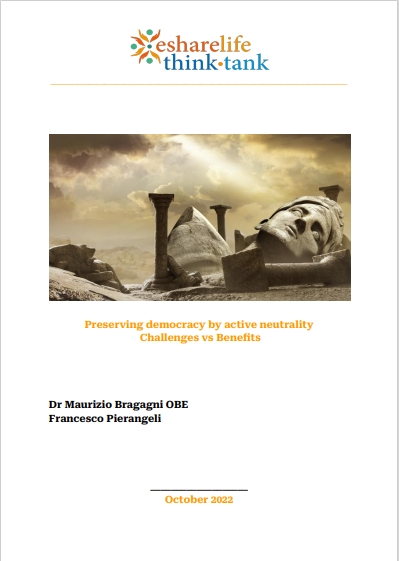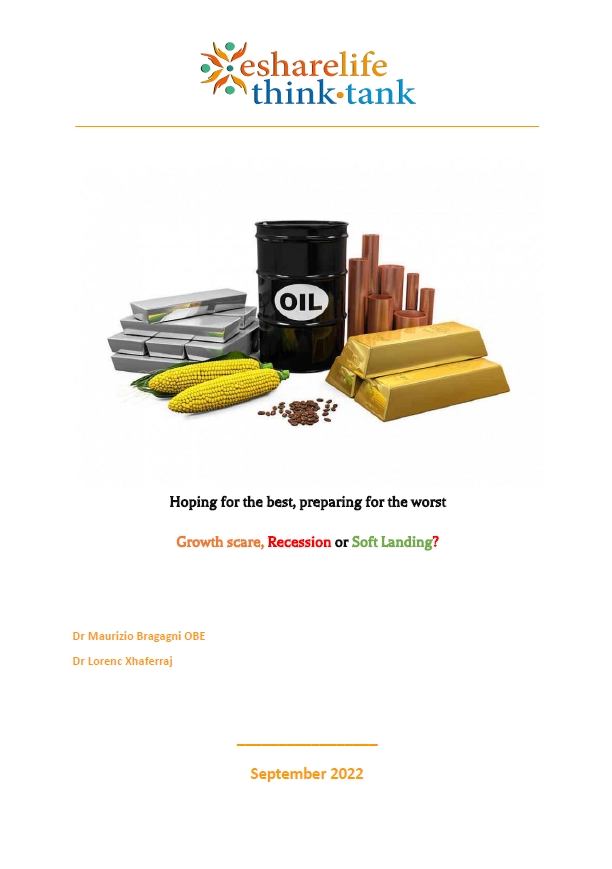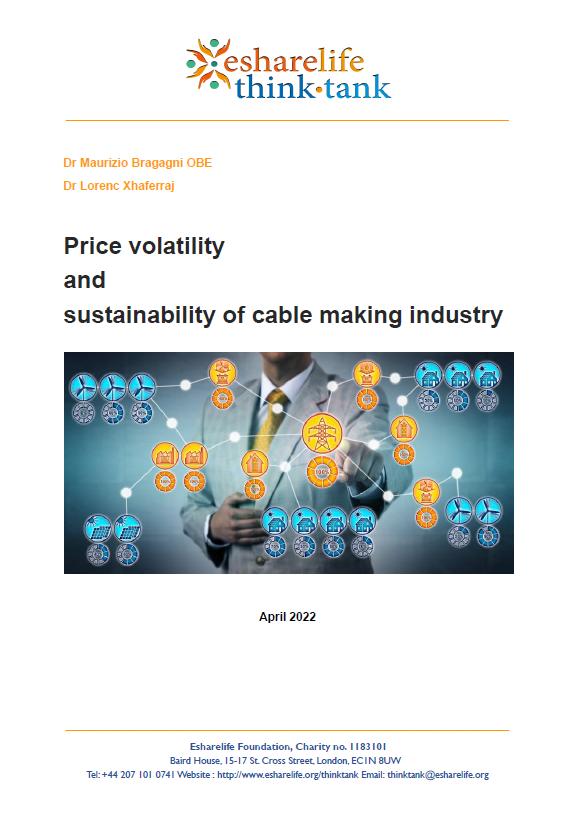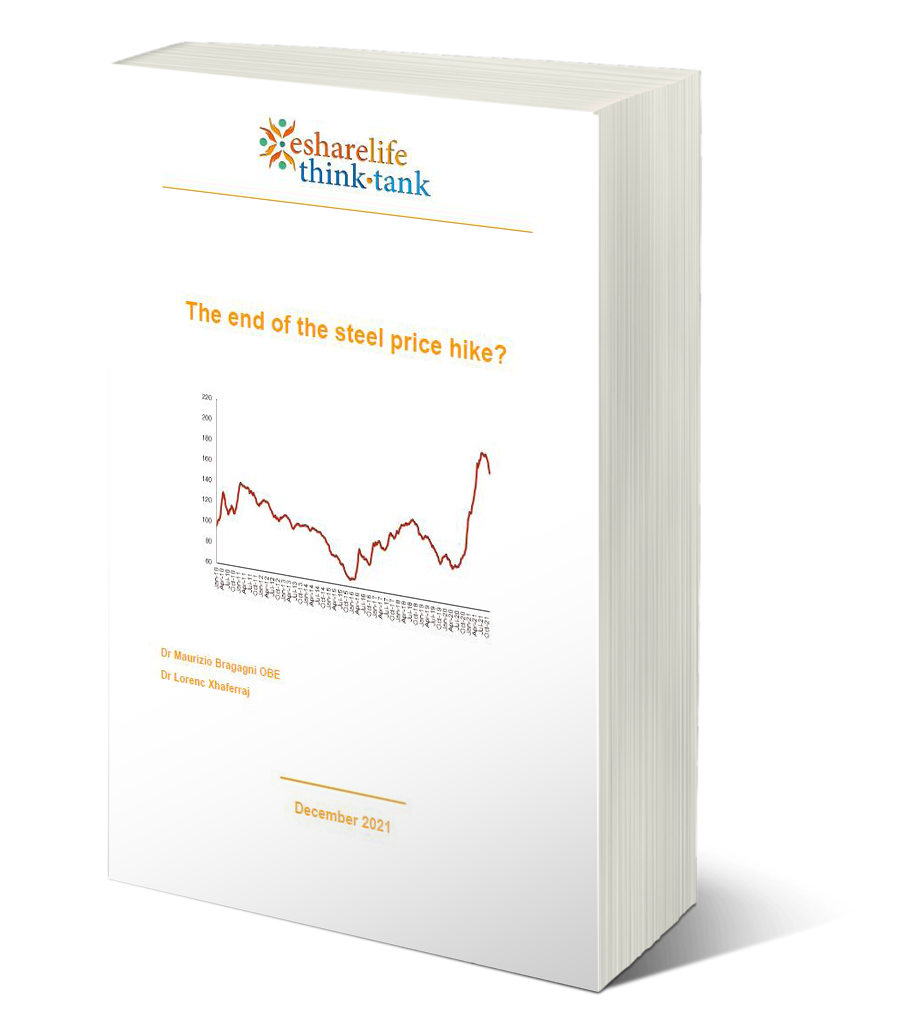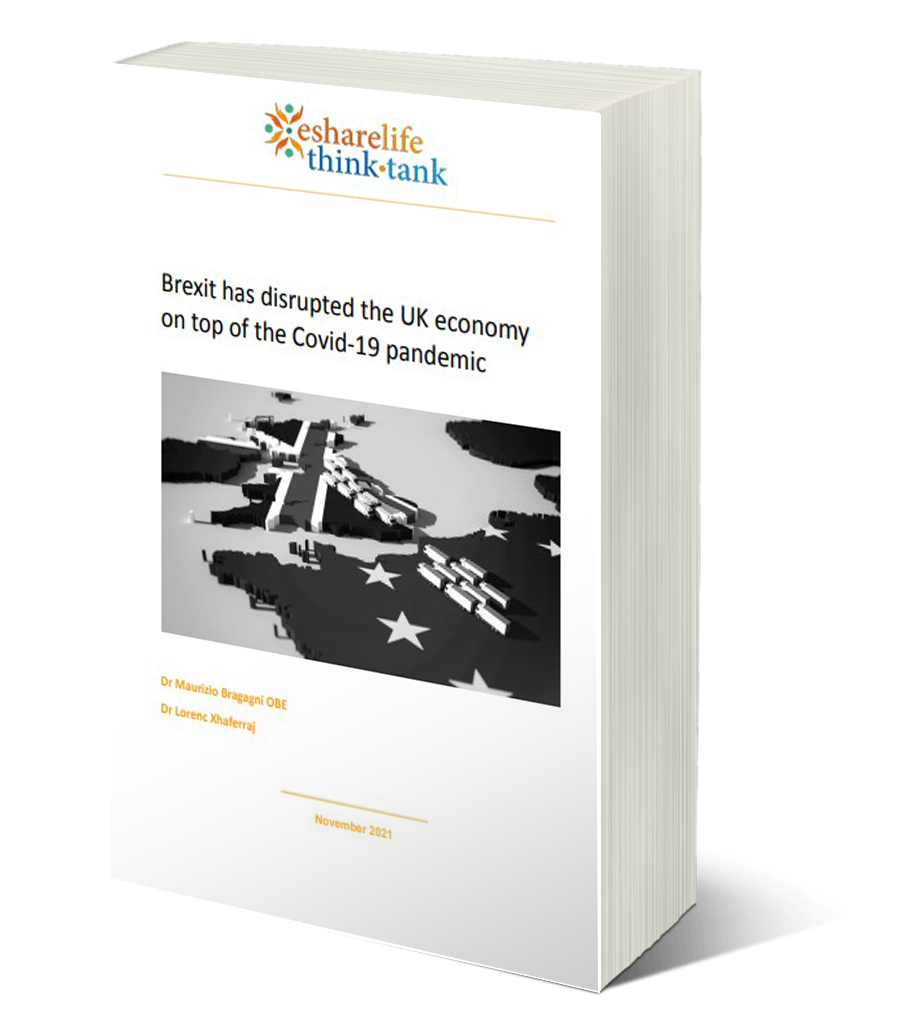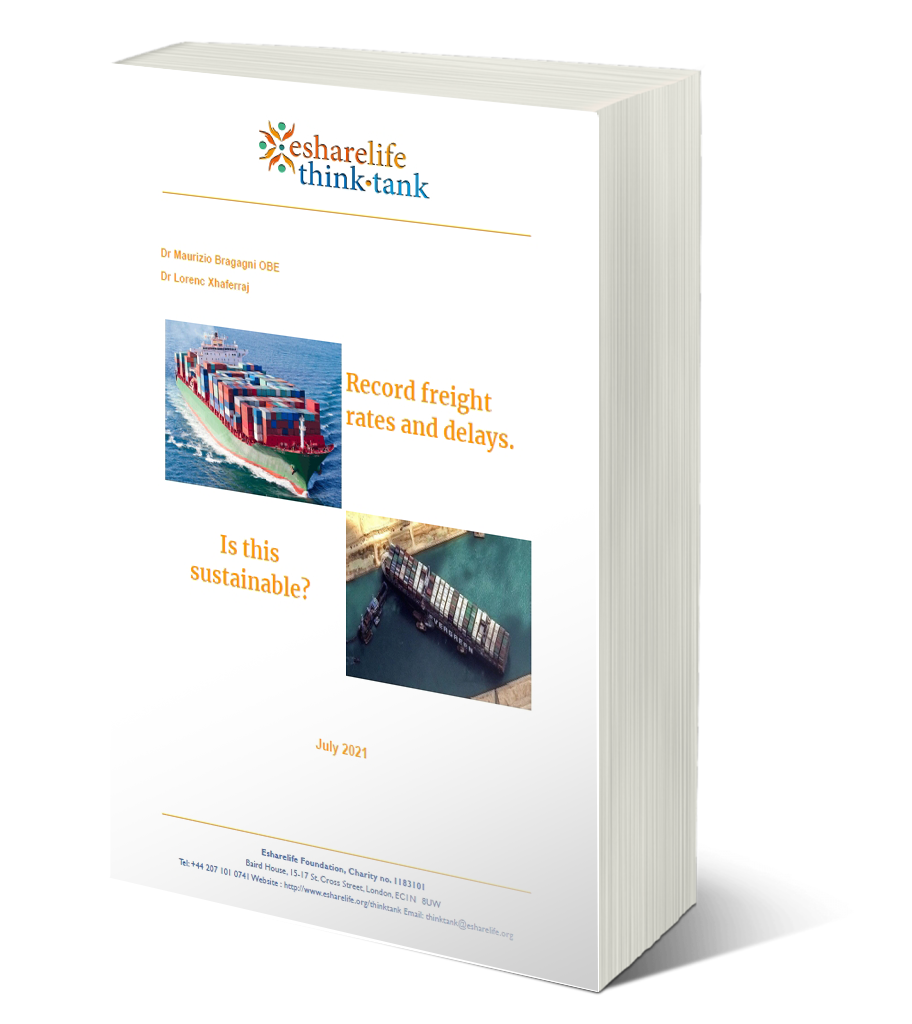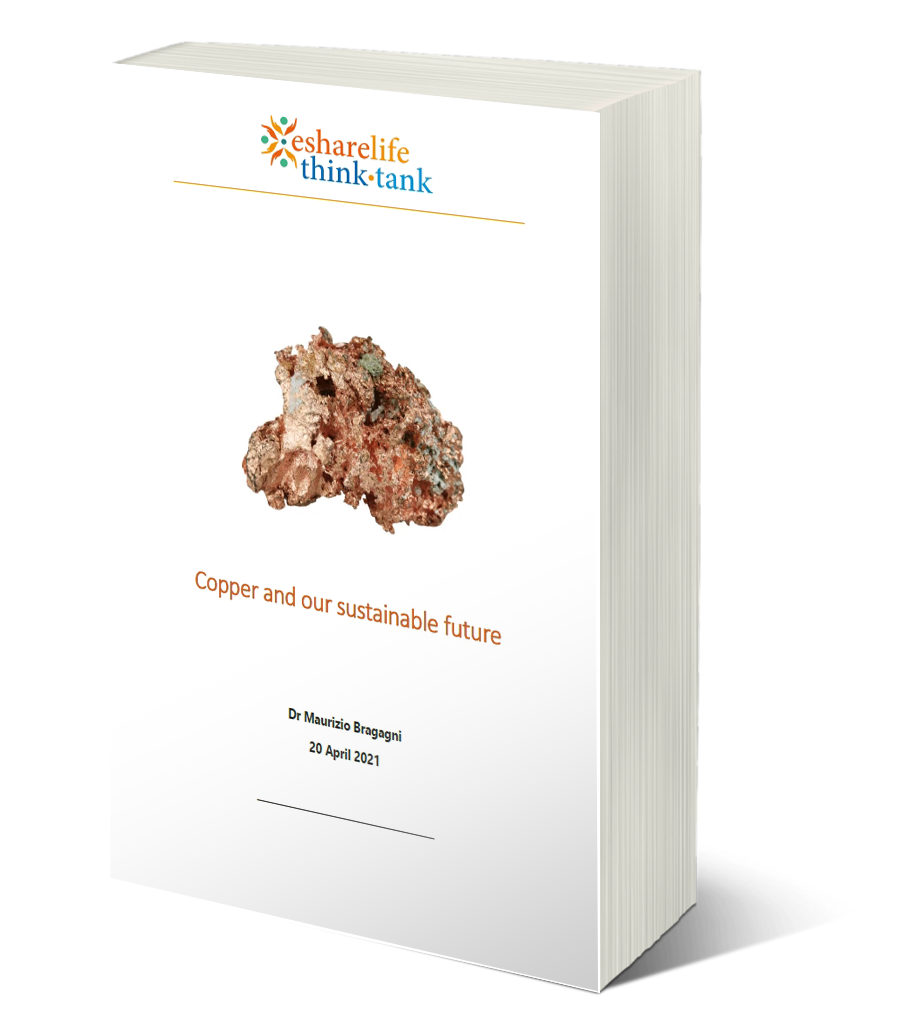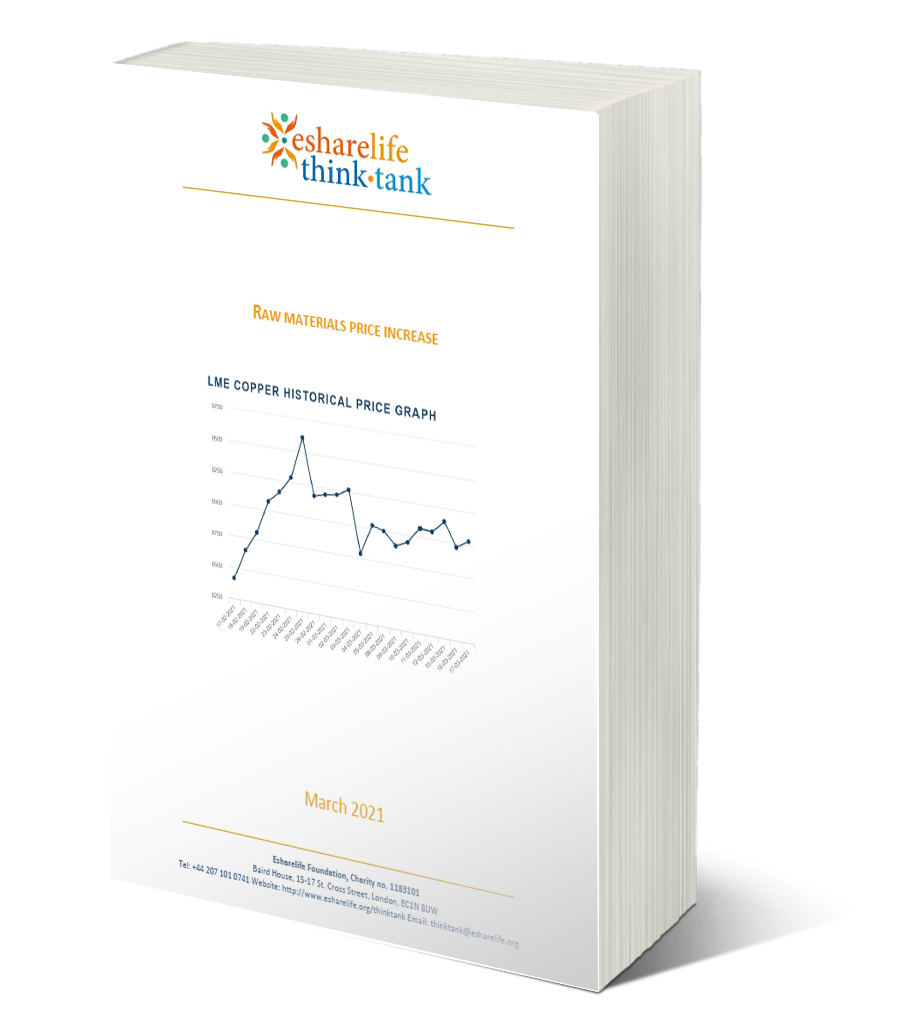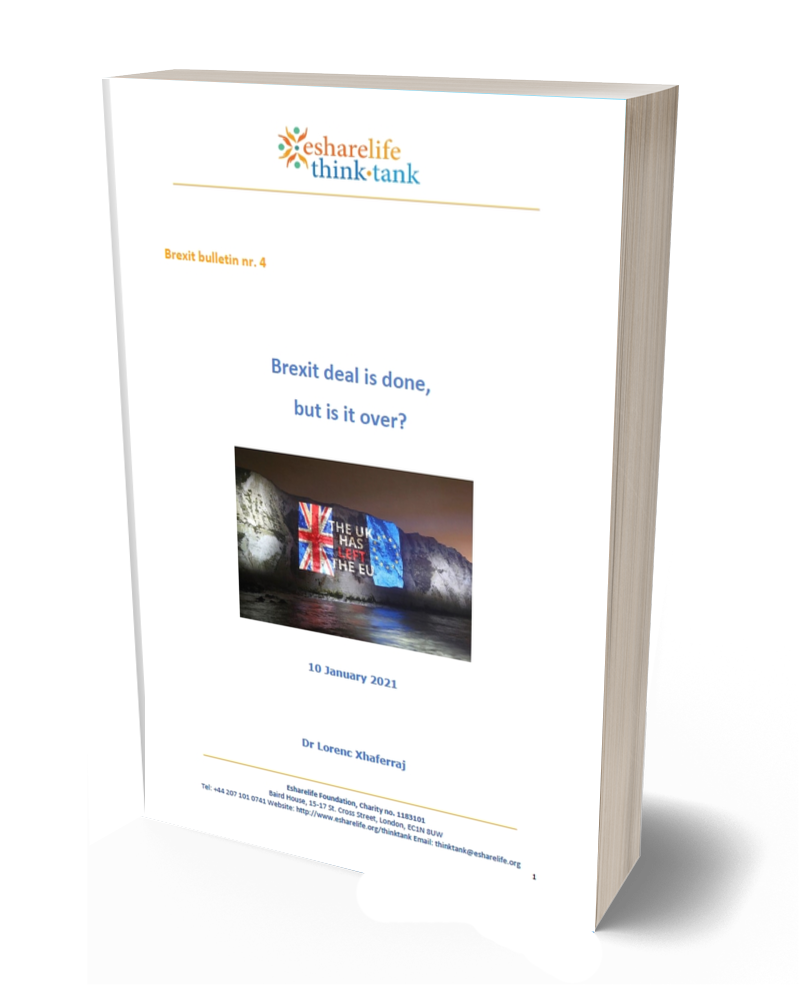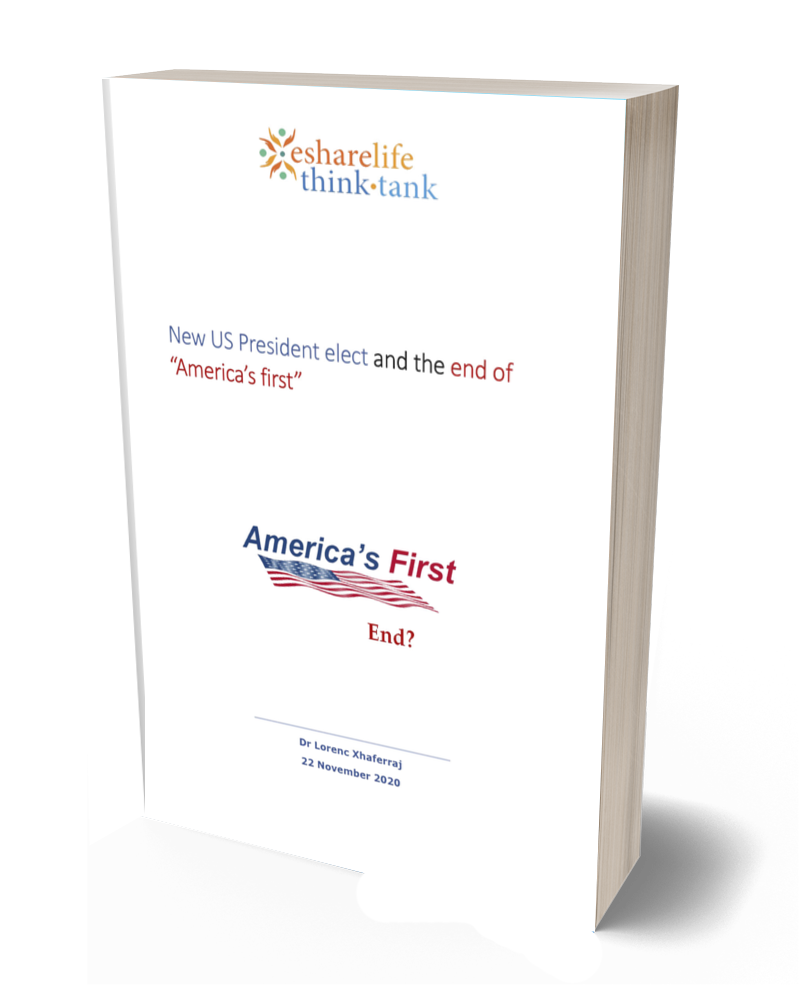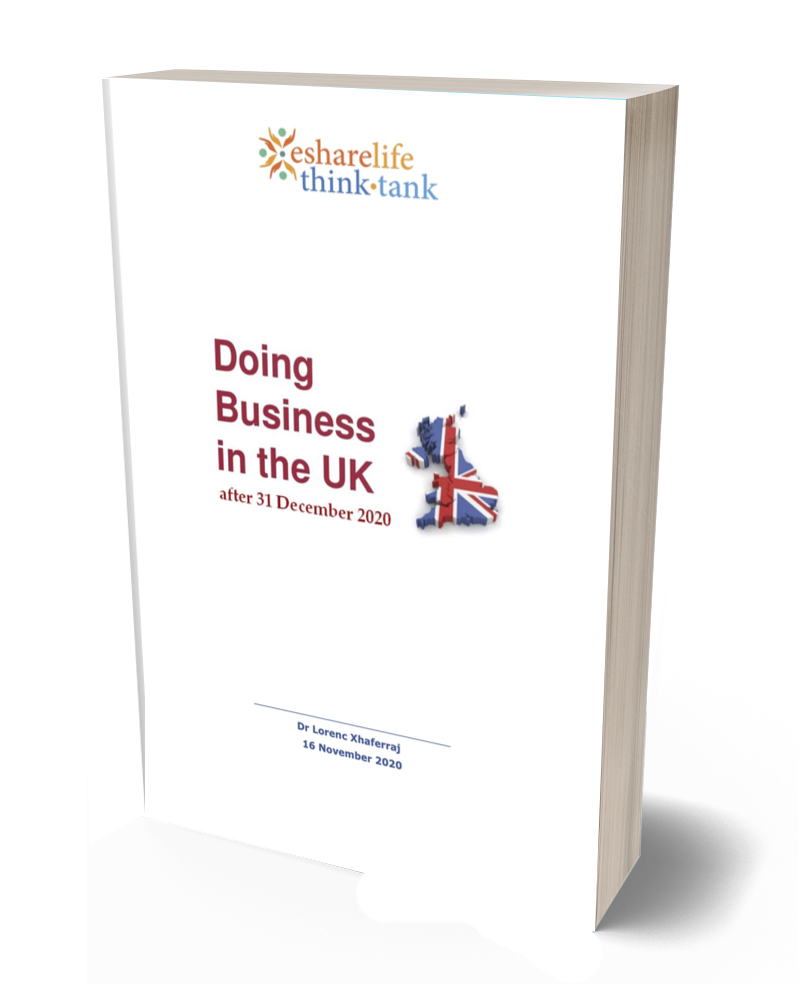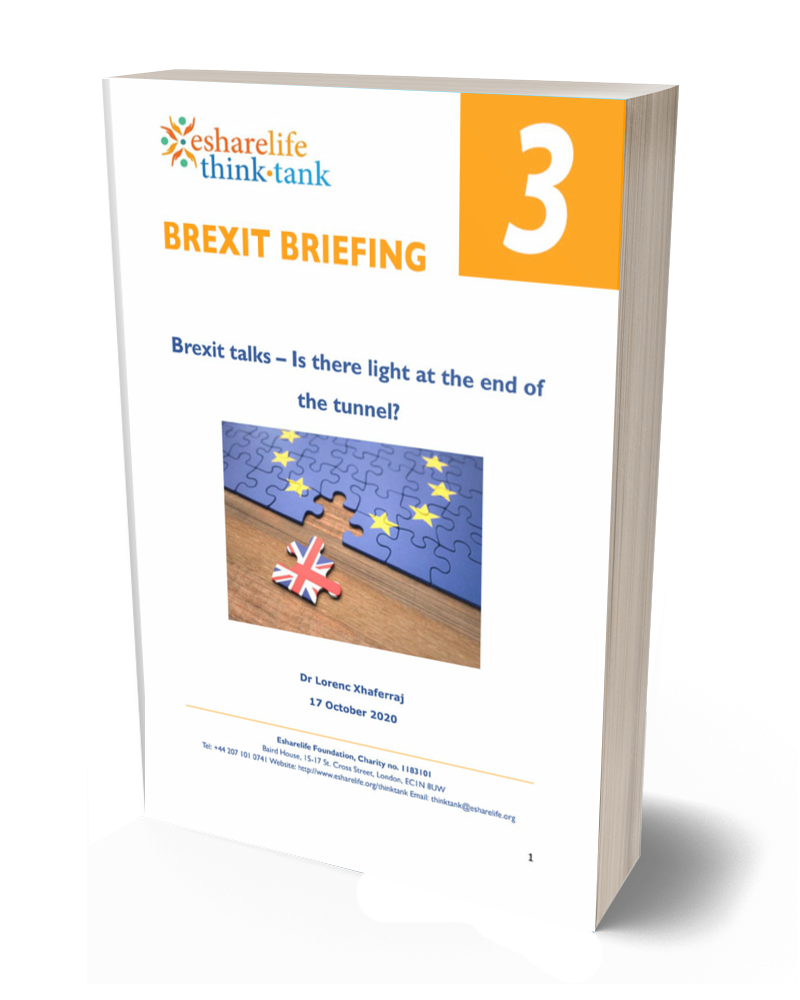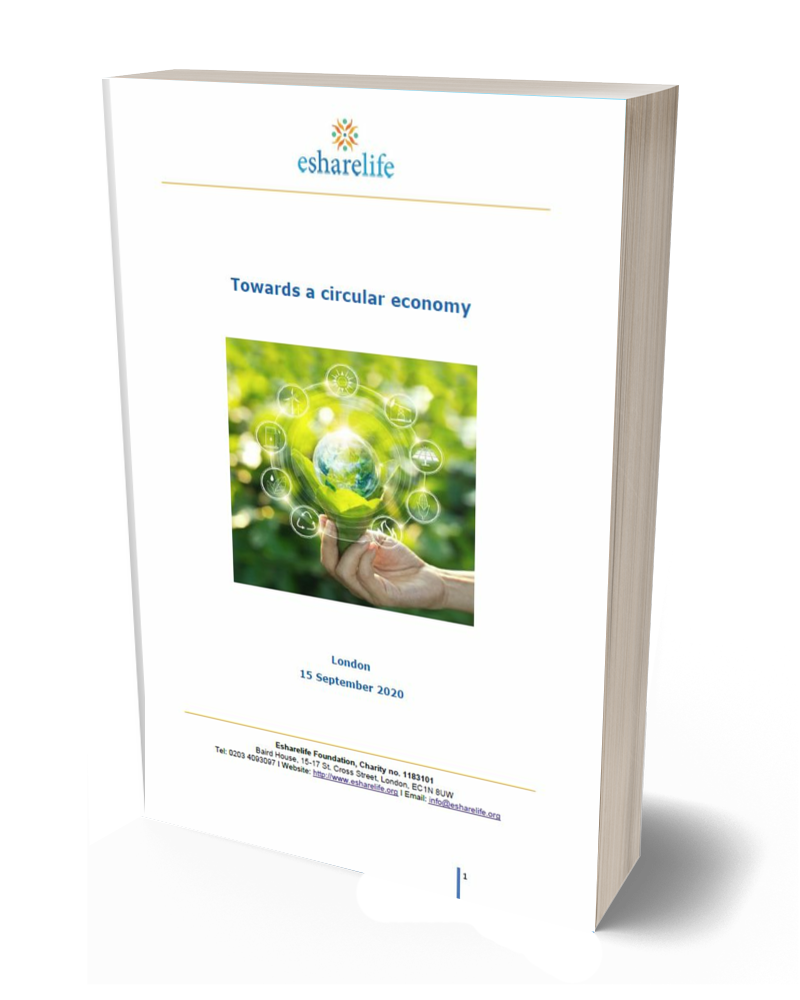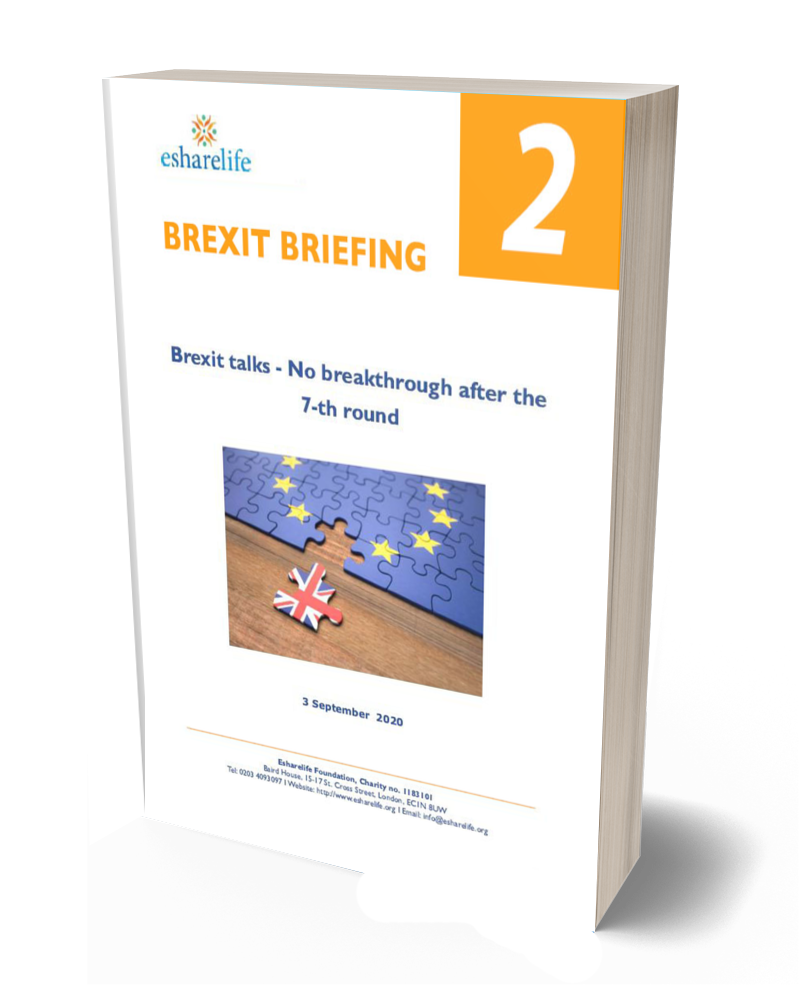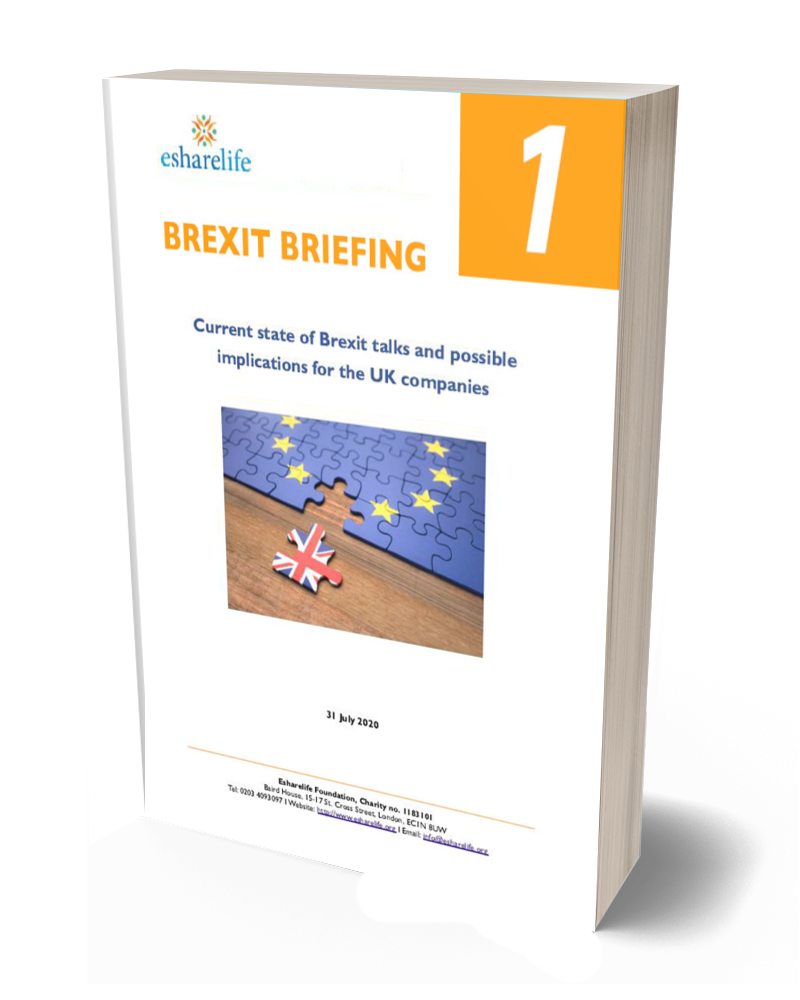Esharelife Think Tank aims to promote Esharelife’s philosophy worldwide, which is to share life in the digital era. Our mission is to conduct high-quality, independent research on the most preoccupying global issues and, based on findings, we will seek to inject sound ideas into the public debate.
Esharelife Think Tank doesn’t profit from the sale of its publications. All the revenue collected from publications’ sales goes without any deductions for the implementation of the education projects in Kenya. If you wish, you can make a direct donation to the Esharelife active projects page.
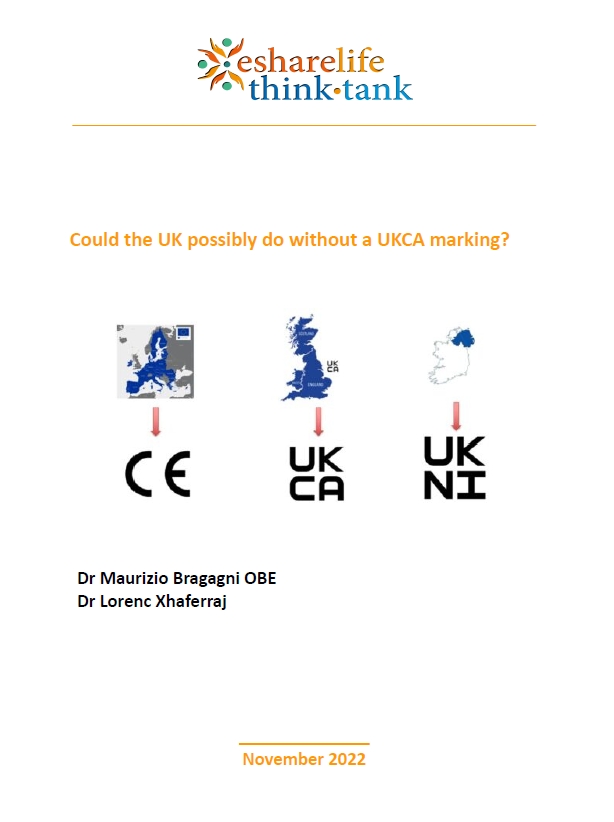
Could the UK possibly do without a UKCA marking?
This paper aims to elaborate on the related issues for the UK business in implementing the new UKCA marking requirements.
The UK left the EU single market at 11PM on 31st December 2020. The United Kingdom Conformity Assessed or UKCA mark is being phased in from 1st January 2021 to replace the CE mark in Great Britain (England, Wales, and Scotland). Businesses are encouraged to be ready for full implementation of the new UK regime as soon as possible.
However, to allow businesses time to adjust, a transition period is introduced. CE marked goods that meet EU requirements (where these match UK requirements) can continue to be placed on the GB market until 11pm on 31 December 2022. This includes goods which have been assessed by an EU recognised notified body.
This paper aims to provide a historical and socio-political perspective on the concept of neutrality and its recent evolutions, especially concerning small states. We will discuss in depth the principle of neutrality, which the Republic of San Marino has applied widely, and its most recent development in light of Russia’s invasion of Ukraine.
After examining the various theories of International Relations on small states’ foreign policy and neutrality, it focuses on the example of San Marino as a small state that has been neutral throughout its history is significant for analysing the challenges and benefits of neutrality.
First, we analyse the origin of the conflict: democracy versus tyranny. Then the adoption of war or of the neutrality status.
We will conclude that neutrality is still relevant in the global political scenario, although it alone does not guarantee safety in this changing world.
As the global economy started to recover from its recession caused by the Covid-19 pandemic, there has been an increased demand for products – especially consumer goods – and materials. The ongoing war in Ukraine is a major factor contributing to higher commodity prices, pushing up inflation around the world.
The cost of raw materials had been on the rise since the onset of COVID-19 about two years back. Though the pandemic has subdued, there is a war in Europe – between Russia and Ukraine, which has affected almost the entire world due to the interconnected economies.
Russia is a major exporter of crude oil, natural gas and solid fossil fuels to the world, including the West. The sanctions imposed on Russia have sent the prices of petroleum products skyrocketing, with Brent crude oil hovering consistently above $100 per barrel, sometimes even reaching $130 per barrel.
Ukraine is among the largest exporters of food grains. The war and resultant closure of maritime routes have severely impacted the supply side, with food grains experiencing acute price increases. The economies around the world that were just recovering from the aftermath of COVID-19 were ill-equipped to handle another shock and survive another “perfect storm”.
Price volatility and sustainability of cable making industry
It’s been five years of significant turbulence in the world economy. After a recovery in international trade in 2017, economic conditions started deteriorating in the second half of 2018 and further in 2019, due to trade tensions between the United States of America and China, fears of a disorderly Brexit in Europe and a negative global output outlook more generally. In addition, available data for 2020 indicate a sharp decline in trade growth (about 8%), largely due to the COVID-19 pandemic.
Businesses around the globe continue to grapple with inflation brought on by the Covid-19 pandemic as well as commodity price increases brought on by disruptions to the supply chain. Amidst this ongoing volatility are the new consequences arising from the Russia-Ukraine crisis that could leave the world facing extended reductions to energy supply, severe sanctions that will likely impact food security as well as rare metal supplies needed to sustain production of key technologies.
The end of the steel price hike?
Iron and steel are indispensable construction and other purposes materials, being used widely in our everyday activities. They are used as a material input for the automotive industry, energy production and networks, urban and long-distance transport infrastructures, and general mechanical engineering industries.
Steel is also expected to be a key material in the future as changing environments will likely require steel to meet infrastructure and construction needs around the world and to build climate-resilient cities and coastal protection. According to the International Energy Agency, renewable power capacity is set to expand by 50% between 2019 and 2024. This increase of 1,200 GW is equivalent to the current total power capacity of the United States. Solar is expected to account for nearly 60% of the anticipated growth and onshore wind 25%.
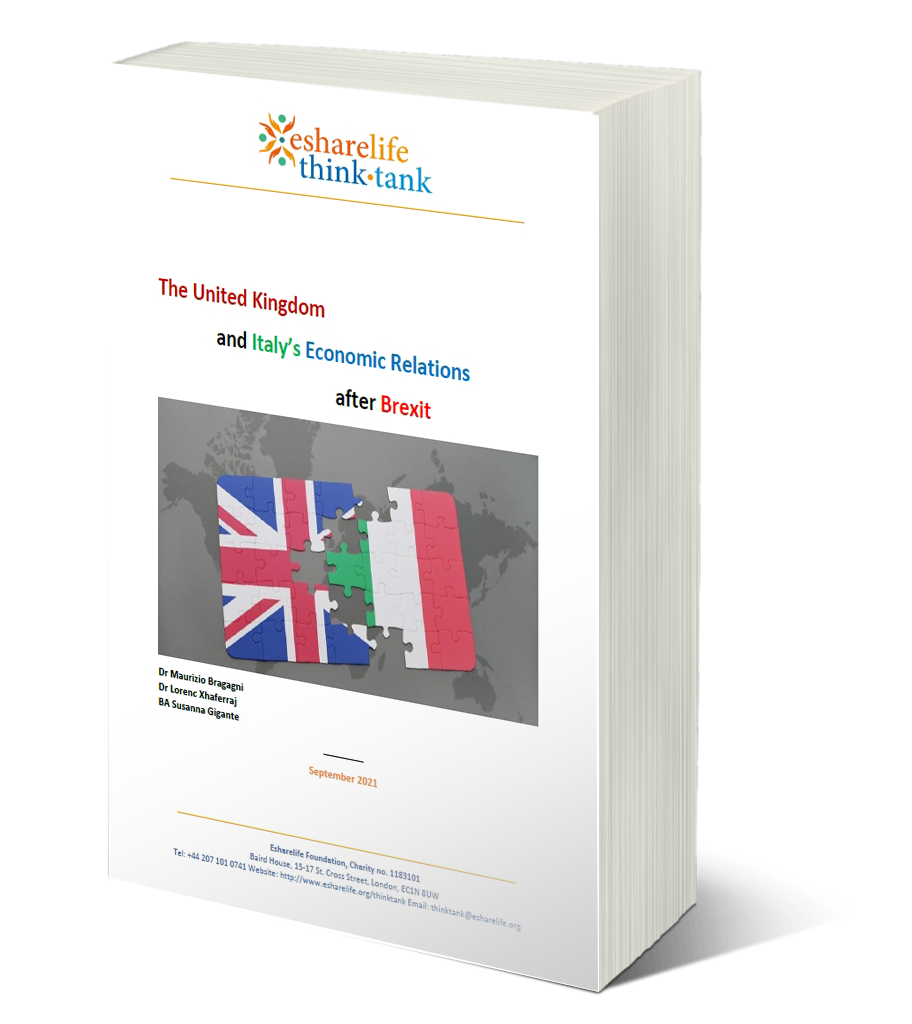
The United Kingdom and Italy’s economic relations after Brexit
The UK formally left the EU on 31 January 2020, following a public vote held on the EU referendum in June 2016. The three-and-a-half-year long preparation process to Brexit has allowed the EU institutions to prepare for the UK withdrawal and anticipate some of its likely consequences.
The formal process had begun on 29 March 2017, with the UK’s notification of its intention to withdraw from the Union (Brexit). To ensure the United Kingdom’s orderly exit from the EU, a Withdrawal Agreement was subsequently negotiated: concluded on 17 October 2019, it was ratified on 30 January 2020. The agreement provided for a transition period up to 31 December 2020, during which time EU law continued to apply to the United Kingdom, including free movement of people and capital, as regards access to financial services. At the end of this period, European law ceased to apply in the UK, now considered a third country to all intents and purposes.
Brexit has disrupted the UK economy on top of the Covid-19 pandemic
It’s been two years since the world is facing unprecedented and multiverse COVID-19 pandemic-related challenges. With the world trying to learn how to live with the Covid-19 virus around, the global economy is opening up again and slowly moving towards the pre-pandemic levels.
Most recently, the impact of Covid 19 is associated with labour shortages, energy price hiking and rising inflation. The above negative economic consequences are true for every single country in the world, but globally they are felt to an uneven degree.
The United Kingdom and Italy’s economic relations after Brexit
The UK formally left the EU on 31 January 2020, following a public vote held on the EU referendum in June 2016. The three-and-a-half-year long preparation process to Brexit has allowed the EU institutions to prepare for the UK withdrawal and anticipate some of its likely consequences.
The formal process had begun on 29 March 2017, with the UK’s notification of its intention to withdraw from the Union (Brexit). To ensure the United Kingdom’s orderly exit from the EU, a Withdrawal Agreement was subsequently negotiated: concluded on 17 October 2019, it was ratified on 30 January 2020. The agreement provided for a transition period up to 31 December 2020, during which time EU law continued to apply to the United Kingdom, including free movement of people and capital, as regards access to financial services. At the end of this period, European law ceased to apply in the UK, now considered a third country to all intents and purposes.
Record freight rates and delays. Is this sustainable?
The world is living through unprecedented times, filled with numerous challenges imposed by the Covid-19 pandemic, which started some 18 months ago to date. Currently, container
shipping prices have reached record highs, mainly due to the disruption of maritime logistics chains.
Highly congested ports around the world basically are running out of vessels and of empty containers, which due to supply chain disruption, again inflicted by the Covid-19 pandemic,
are in the wrong place and not in Asia ready to be loaded.
Copper and our sustainable future
Copper was the first metal manipulated by humans, and it remains an important metal in industry today (Pappas, 2018). It can be found naturally in pure metallic form; therefore, it was relatively easy for ancient humans with their primitive tools to extract and use copper without the need for complicated techniques and technology that was developed later by the mankind.
Humans have been making things from copper for at least 8,000 years and figured out how to smelt the metal by about 4500 B.C. Copper was an essential element that helped mankind evolution.
Raw materials price increase
Market conditions are driving up the cost of many raw materials, currently buyers are bombarded with price increases across multiple products.
The price of raw materials is increasing and manufacturers face cascading challenges through the supply chains. As prices continue their upward climb, manufacturers are still dealing with the two supply chain headwinds, plaguing the industry throughout the pandemic: slowing supplier deliveries and labour availability.
Post Covid-19 green recovery and our next normal?
Since its outbreak in December 2019, the COVID-19 pandemic has disrupted daily lives of billions all over the world, and added significant pressure on the already existing enormous challenges to the global economic, environmental, social development. More than a year has passed since its outbreak and matters related to its fight seem to get more complicated, with health and the economic situation far from getting better.
The World Health Organisation first learned of this new virus from cases in Wuhan, the People’s Republic of China on 31 December 2019. Globally, as of 23 January 2021, there have been 96,658,420 confirmed cases of COVID-19, including 2,092,062 deaths, reported to WHO. These figures are quite alarming and the worst thing is, they keep growing significantly with every single day passing. While most of the infected people experience mild symptoms and recover after 2 to 6 weeks, there is increasing documentation of the long-term effects of COVID-19, including among younger and non-vulnerable groups.
Brexit deal is done, but is it over?
On 18 December, European Commission President Ursula von der Leyen declared “big differences” remain in the Brexit trade talks with the UK, with fisheries still the main sticking point between the two sides. At the same time, the UK warned progress in the talks had been “blocked” and that time is running out for a deal to be done.
However, the Post-Brexit deal was announced on December 24th, 2020, on Christmas eve, by Boris Johnson, the UK Prime Minister and Ursula von der Leyen, President of the European Commission.
New US President-elect and the end of America’s first slogan
On 3 November 2020, the US-registered voters cast their votes to elect their 46th President. According to Bloomberg, the total number of votes cast for president was a range from roughly 157.1 million to 165.0 million (68.6%–72.1% of the citizen voting-age population). As vote counts continue to be finalized, 50 states have already seen turnout higher than 2016 levels.
Fair and free elections are a hallmark of American democracy and the US has long promoted itself as the world’s beacon of democracy. It is quite common for many countries in the world to seek assistance or the opinion of the US government whether the elections conducted in these countries were free and fair. Now, the most essential tool of democracy, free and fair elections, is under attack in the US itself.
Doing business with the UK after 31 December 2020
On 1 January 2021 will end the transition period and the UK will be leaving the EU single market and customs union. The UK Government will operationalise import controls on goods moving from the EU to GB, in a manner similar to the UK’s current treatment of Rest of World (RoW) goods.
These controls will be introduced in three stages: January 2021, April 2021, and July 2021. It is expected that the EU will also operationalise full import controls on goods moving from GB to the EU from 1 January 2021. As a result, there will be significant changes in the process of moving goods between GB and the EU. All businesses moving goods across the GB-EU border will need to take account of these and adapt accordingly.
Brexit talks – Is there light at the end of the tunnel?
The 15th of October final deadline set by the UK PM Johnson to reach a deal with the EU on Brexit has approached not so quickly, but both negotiating teams weren’t able to bridge the gap around the same sticking points:
- Level playing field
- Fishing
During the September- mid October round, there was limited progress on the first point by defining some terms of how strong would be the British commitments on governance and subsidy control. Fishing continues to be the biggest flashpoint for both the UK and EU sides, with the most potential to make or break the final deal.
Towards a circular economy
The concept of a circular economy is not new. Nowadays, there are more than 100 different definitions of circular economy, being heavily used in the scientific literature and by a wide range of cross-field professionals.
The reason that there are so many different definitions in use of circular economy lies behind its concept, which is applied by a diverse group of researchers and professionals according to their field of interest.
Brexit talks – No breakthrough after the 7th round
In our July report we have hinted that the Brexit saga would come to an end. After 6 rounds of talks between the EU and the UK at the end of July 2020 there were only two (out of five) fundamental sticking points:
- Level playing field
- Fishing
During the August round, the 7th round of talks, the UK and EU negotiators have made “no progress whatsoever” on the issue of fisheries, where the EU is seeking similar access to British waters for its member states’ fishing fleets to the current status quo.
Current state of Brexit talks and possible implications
Esharelife Foundation is a charity that supports different projects in collaboration with a different number of charities to deliver help to those who need it most.
